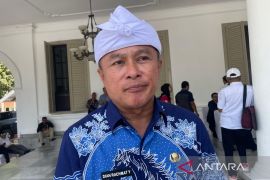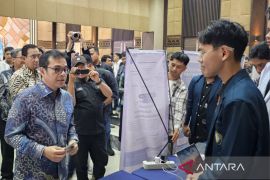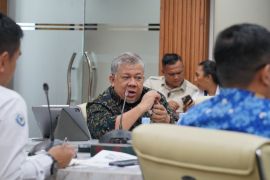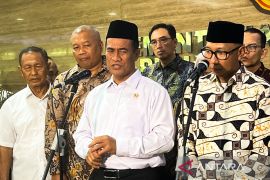Consultation with various stakeholders also reflected the same view.
"It will not inhibit investment, and concerns were being raised more by those who were hitherto comfortably using foreign currency and may find doing so difficult when this rule is enforced," deputy director of the Department of Management BI Money, Hermowo Koentoadji, said in Bintan, Riau Islands, on Tuesday.
Hermowo made the statement during his appearance as a speaker at an event organised by Bank Indonesia to train journalists.
According to Hermowo, the obligation to use rupiah for domestic transactions was mandated by the Law on Currency No.7 year 2011, approved by the government and the parliament, also set forth in Bank Indonesias Regulation Number 17/3/PBI/2015.
"Various aspects were thoroughly thrashed out to ensure that the move does not inhibit investment," Hermowo said.
Currently, some people who are used to using foreign currency but are being told to use Rupiah, could be shocked.
Hermowo also said the obligation to use Rupiah also carried certain exceptions in five sectors. These included certain transactions in the state budget, revenues or grants from or to foreign countries and international trade transactions, which may not be in the local currency.
Also, bank deposits in the form of foreign exchange and international finance transactions are also exempted, Hermowo said.
The exception will be for a certain period and people would have to apply for permission from Bank Indonesia, Hermowo added.
Based on Article 21 paragraph 1 of the Currency Act, it has been declared that every person shall use Rupiah in transactions carried out in the territory of the Republic of Indonesia.
Anyone refusing to do so can be punished with a jail term of maximum of one year and a maximum fine of 200 million Rupiah, as per Article 33 of the Currency Act.
He urged the people to use rupiah in domestic transactions because it as one of the symbols of the state and the sovereignty of the nation.(*)
Editor: Heru Purwanto
Copyright © ANTARA 2015











